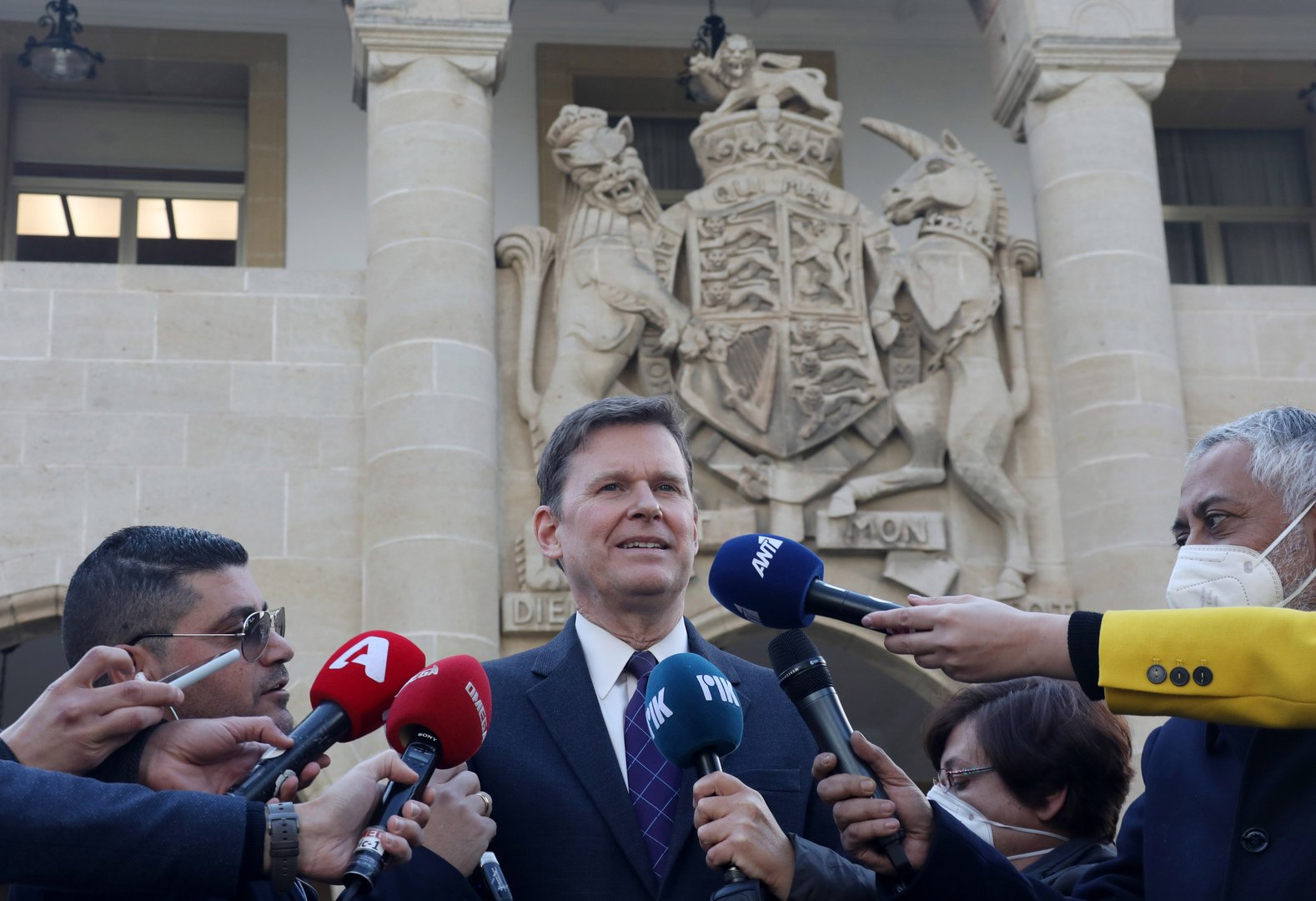How the Cyprus problem will play out in the near future will likely depend on the outcome of the island’s impending presidential election in February and the new political players on the Cyprus scene, according to the head of the peacekeeping force in Cyprus, Colin Stewart.
In an interview with Kathimerini newspaper published on Sunday, Stewart said that realistically, as long as the United Nations remains, the only viable and stable solution to the situation in Cyprus is a mutually acceptable solution applied at the will of both sides. He added that much had been achieved in Crans Montana and could be used in any future settlement negotiations when the parties reach a common understanding.
However, Stewart was quick to point out that the results of the presidential elections will have a pivotal role to play for the Cyprus problem.
“After the elections, new players will emerge and therefore we do not even know the impact they will have on the dynamics around the Cyprus problem. Either for better or for worse,” Stewart said.
Meanwhile, regarding the separate agreement sought with the UN by Turkish Cypriot leader Ersin Tatar, Stewart said “the UN will not follow any approach, either today or in the future that will violate the Security Council resolutions”.
Asked why there has been no progress in the negotiations on the Cyprus issue, Stewart noted that the political impasse over the resumption of talks reflects the collapse of the long-standing consensus between the sides on the basis of such negotiations.
“There is already a political stalemate as a result of the collapse of the long-standing consensus between the two communities on the basis of the talks. The only way to bring them back to the table is by increasing the political will and strengthening confidence so that common ground can be found between the two sides, establishing a pattern of success, highlighting issues of common interest and building stronger ties between the two communities,” he added.
As for confidence-building measures and technical committees, he noted that they are not a substitute for talks, nor a distraction from talks, but the path to talks.
Regarding reports of late about the use of Cetinkaya stadium, Stewart said that the stadium will be used exclusively as a place for football training, “as it has been used in the past, with strict regulations, in order to protect its status within the buffer zone”. He further said that “any claim that the status of the site has changed is false and misleading” as it remains within a buffer zone under the control of Unficyp.
Meanwhile, in a wider context, Stewart added that the UN Secretary-General has repeatedly expressed his concerns about the tensions in Cyprus and the wider Eastern Mediterranean region.
“He understands the tensions that are being created between Greece and Turkey and has underlined that activities and statements that may culminate these tensions should be avoided,” Stewart said.
Stewart pointed out that the UN Secretary-General has repeatedly stressed the importance of a peaceful resolution of these disagreements and in this context has encouraged Greece and Turkey to continue bilateral dialogue with the aim of reducing tensions.







Click here to change your cookie preferences